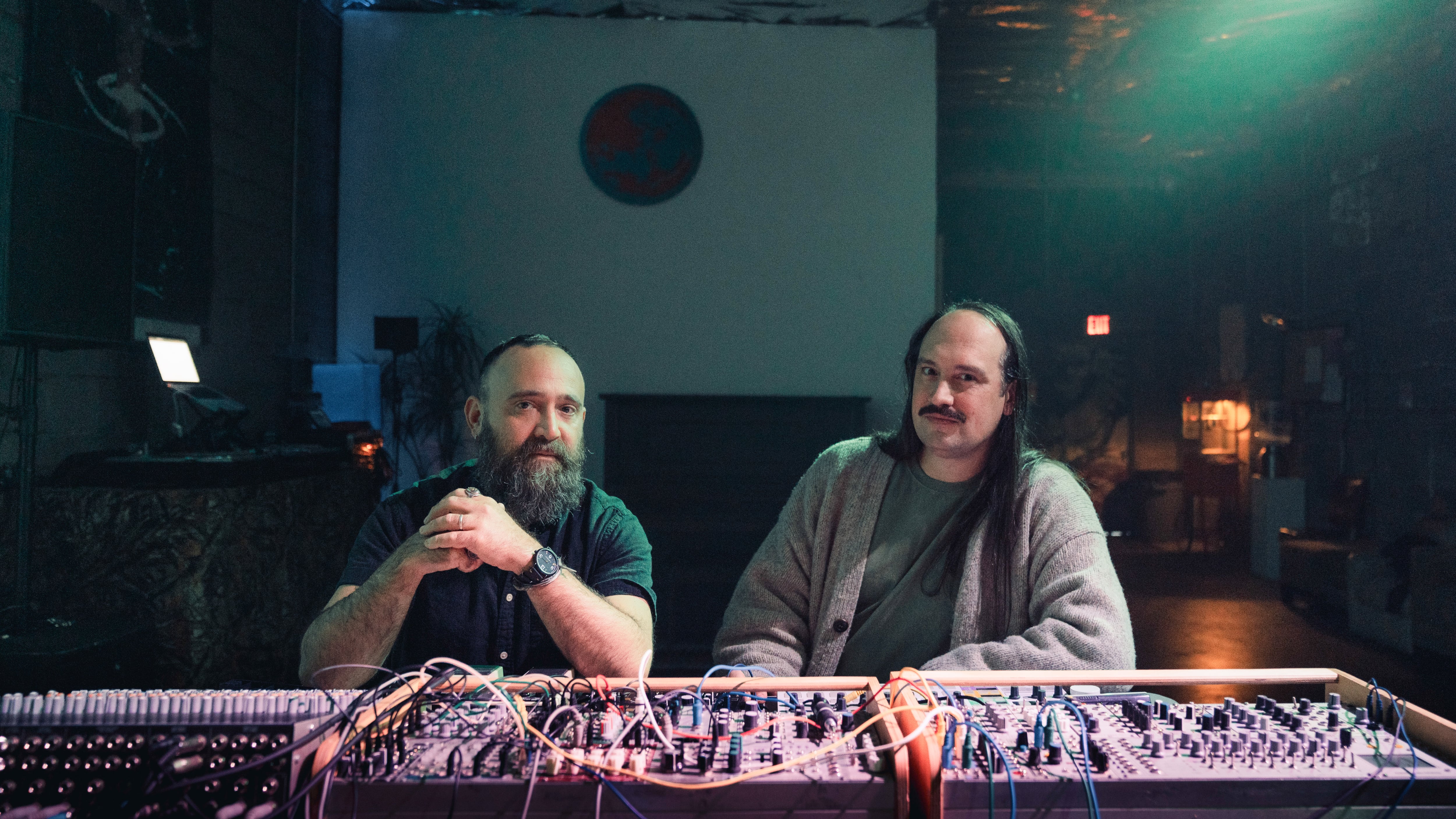Portland noise duo Yellow Swans released their masterpiece Going Places in 2010, two years after members Gabriel Mindel Saloman and Pete Swanson parted ways and immersed themselves in their respective careers in academia and nursing. Going Places was intended as a final statement: a capstone to the dozens of releases they’d put out in their seven-year existence, painstakingly assembled from years of jams and live recordings. Mindel Saloman and Swanson knew it was some of their best work, but neither of them could predict the life it’s taken on since then; it’s regularly cited by fans and critics as one of the greatest noise albums of all time.
“There was a ceiling that kept noise music within this very narrow underground community,” says Mindel Saloman, who now lives in Minneapolis. “And for whatever reason, Yellow Swans kept on pushing that noise ceiling. I think what happened in some ways was that we underestimated the noise ceiling at the end.”
Yellow Swans’ reputation grew in their absence, and experimental music nerds rejoiced earlier this month when the duo began releasing a cassette containing their first new music in 14 years. The title? Out of Practice.
“We hadn’t really played together for 10 years,” says Swanson, who lives in Colorado and spent much of the intervening time co-running the Freedom to Spend label with Portlander Jed Bindeman. “It took us 10 or 15 minutes rehearsing, and it was like, OK, we still sound like us.”
Out of Practice I came out July 5, with Out of Practice II following two weeks later. Another installment is planned at the time of this writing, featuring recordings the band made in 2023 while getting back into the groove (if such a term is appropriate for improvisational noise music).
While these short, two-track tapes aim less for the glacial majesty of Going Places than a simple documentation of the duo’s rekindling creative practice, it’s obvious they still have a fearsome chemistry. The duo’s dense electronic textures seem to continually turn themselves inside out, and though it’s harsh music by most metrics, it somehow goes down easier than you’d expect.
Yellow Swans reconvened when organizers of the 2023 Oblivion Access Festival in Austin, Texas, inquired about the possibility of the two musicians reuniting for shows.
“[Gabe and I] talked about it a little bit, and we basically had these ideas about what we had bandwidth for and what we needed to commit to in order to make it work,” Swanson says. “And for the most part we’ve been able to do that and stick to the essential stuff, which I think mostly is putting in work rehearsing and making sure we can do something that is of a certain quality.”
The group’s set at the festival in June 2023 was their first performance in 15 years, and they’ll play in San Francisco and Los Angeles in September. A Portland gig planned for July fell through, and the duo is still planning their homecoming show.
For a band so prolific, Yellow Swans retained a remarkable level of quality control throughout their decadelong run of releases. While many noise bands take a puckish and confrontational attitude, reveling in flipping the bird to musical convention, Yellow Swans always prioritized interesting textures and compositions, a likely reason for their wide appeal compared with other artists in the noise genre.
Though their music is often improvised, Swanson describes a “presence” that sets in during shows and rehearsals when the two are locked in toward a common goal.
“It’s not necessarily about where the music’s going or what it’s doing or if it’s reaching a certain point of intensity,” Swanson says. “It’s sort of like, are there changes happening that are interesting? Are there things shifting in the music that neither of us really anticipated beforehand? I think we’re going to get more and more of those moments as we play.”
The two are tentatively working toward a proper album, which Swanson says would “have a little bit more of a framework, either compositionally or conceptually,” than past releases. However, Swanson admits they’re “not there yet,” simply because of their geographical separation and the demands of their careers.
“It’s a hard thing to kind of articulate to people who don’t work in medicine,” says Swanson. “But the stakes are pretty high. It’s something that you need to take pretty seriously.”
The strain of touring was the main contributor to the band’s initial breakup, and the band isn’t keen to repeat the same routine, especially in the thick of their respective careers.
“We just didn’t enjoy being in each other’s company, being on the road and the physical exhaustion of it combined with the way that it disrupted our lives,” Mindel Saloman says. “And we had other ideas and ambitions of what we wanted to do.”
Thus, the duo agrees they wouldn’t work on anywhere near the same level they did in the 2000s even if the band continued to work regularly.
“If there’s an opportunity that feels appropriate to the lives we’re living, then totally,” Mindel Saloman says. “But Pete’s not gonna give up his practice to be in a noise band, and I’ve just spent eight years getting a Ph.D. What I would like is to get to a place where Pete and I can consistently play every year and that there’s a continued generation-after-generation interest in what we do.”
“Yeah,” Swanson adds, “and playing Portland.”

